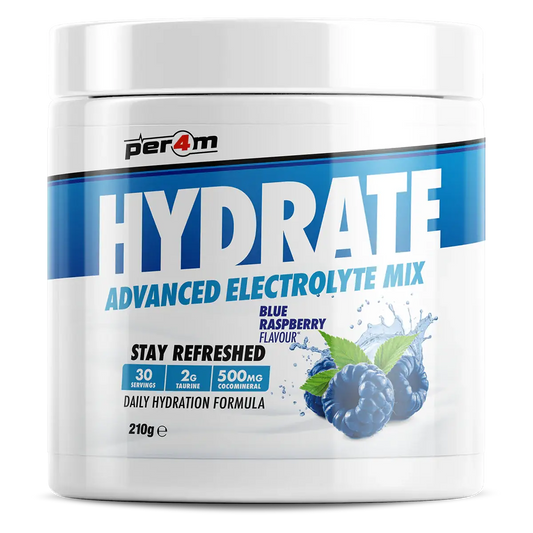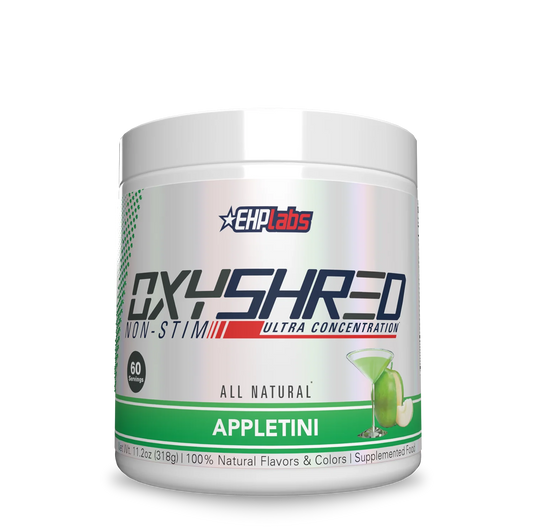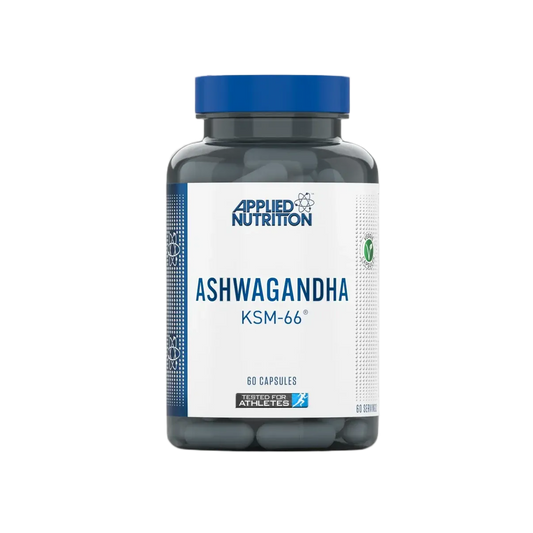Introduction: Why Sitting Still Drains You Faster Than Sprinting
There’s a strange paradox about modern life: we’ve never moved less, yet we’ve never felt more exhausted. You sit at a desk for eight hours, barely lift anything heavier than a coffee mug, maybe take a few calls, maybe answer too many emails — yet by 4pm, your energy feels like it’s been wrung out by an Olympic decathlete.
And here’s the uncomfortable truth:
Desk fatigue isn’t laziness. It’s biology.
Your brain is a 1.4kg organ that burns up to 20% of your daily calories, even at rest. Mental task-switching, notifications, Zoom calls, admin clutter — each one drains glucose, neurotransmitters, hydration, micronutrients, and attention bandwidth. Unlike physical tiredness, mental exhaustion is harder to notice until it’s overwhelming.
That’s why today’s desk workers feel the same burnout symptoms athletes get:
-
afternoon crashes
-
brain fog
-
unregulated cortisol
-
low dopamine
-
dehydration headaches
-
nutrient deficiency
-
physical stiffness from sitting
-
chronic fatigue masked as “I’m just tired”
So if you’ve ever wondered why a desk job feels more draining than manual labour, you’re not imagining it. But the good news? You can fix it — naturally, safely, and sustainably — with smart habits, science-backed nutrition, and targeted supplements that support your brain, hydration, hormones, and productivity.
Let’s break down the real reasons you’re tired, and how to turn your desk into a place of performance rather than depletion.
1. Why Is Working a Desk Job So Exhausting?
Desk exhaustion comes from a mix of biology, environment, psychology, and chemistry.
Here are the five big culprits:
1. You’re mentally overstimulated but physically under-stimulated.
Your body is designed to move. Your mind is designed to focus deeply.
A desk job does the opposite:
-
no movement
-
constant digital noise
-
endless multitasking
-
shallow focus
-
poor posture restricting circulation
-
artificial light flattening circadian rhythms
This combination creates cognitive fatigue — a type of tiredness that no amount of coffee fixes.
2. Poor hydration kills brain function.
Even 1% dehydration reduces concentration, reaction time, and mood.
Most people spend eight hours drinking nothing but coffee.
This is where something like Per4m Hydrate Electrolyte Mix becomes a game-changer — not for training, but for maintaining hydration during long desk sessions. Electrolytes keep your cells firing, your brain oxygenated, and your energy stable.
3. Micronutrient deficiencies accumulate silently.
Desk fatigue is often nutritional fatigue. Missing key vitamins — B12, iron, magnesium, vitamin D — tanks energy and cognitive performance.
Daily support from Applied Nutrition Multi-Vitamin Complex ensures your body has the foundational nutrients required to feel alert and functional.
4. Stress hormones are constantly elevated.
Deadlines. Notifications. Slack messages. Emails at 9pm.
Your brain interprets all of this as “threats,” spiking cortisol.
Chronic cortisol =
-
poor sleep
-
increased fatigue
-
anxiety
-
cravings
-
poor memory
-
low motivation
This is where adaptogens like Applied Nutrition Ashwagandha step in — supporting calmer, more stable stress responses.
5. Brain fog isn’t normal — it’s a sign of cognitive overload.
You may blame tiredness, but it’s often neurotransmitter depletion:
-
Low dopamine → low motivation
-
Low acetylcholine → poor memory
-
Low GABA → anxious, restless mind
-
Low serotonin → mood swings
Natural nootropics like DNA Sports Lion’s Mane support nerve growth factor (NGF), cognitive clarity, and sustained mental performance. It’s one of your best tools for staying sharp in a demanding job.

2. How to Have More Energy During the Day (Without More Caffeine)
Caffeine works — until it doesn’t.
After a certain point, it becomes a trap:
Temporary energy → rebound crash → increased stress → worse sleep → next-day exhaustion → more caffeine → repeat.
But genuine, sustainable daytime energy comes from supporting the three systems that actually keep you alert:
hydration, micronutrients, and neurotransmitters.
Hydration: Your First Energy Source
Aim for small, steady hydration through the day — not one huge chug at lunch.
This is where Per4m Hydrate Electrolyte Mix shines. Unlike plain water, electrolytes:
-
increase energy
-
improve concentration
-
prevent midday headaches
-
support nervous system balance
-
reduce muscle tightness from sitting
Electrolytes aren’t just for runners — office workers burn through sodium and potassium rapidly through stress.
Micronutrient Support
Your body needs B-vitamins, iron, zinc, magnesium and vitamin D to convert food into energy. Without them, you’re running a car with no fuel pump.
Just one serving of Applied Nutrition Multi-Vitamin Complex covers the essentials so your body can actually produce energy rather than borrowing it from stimulants.
Cognitive Support
Desk jobs require focus, creativity, memory, stress control, and problem-solving.
That’s a lot of pressure on your brain.
DNA Sports Lion’s Mane gives you a clean, non-stimulant mental boost that keeps you sharp without the jitters or crash. Perfect for coding, writing, designing, admin, or meetings.
Stimulant-Free Energy Boosts
For those who want an extra lift without cortisol spikes:
EHP Labs OxyShred Non-Stim supports clean energy, calorie burning, and alertness without caffeine. Office workers love it because it enhances energy predictably — no crash, no anxiety, no sweating through your shirt in a meeting.
3. How Do You Stay Active When You Have a Desk Job?
Activity is non-negotiable — not for fat loss, but for energy. Movement increases blood flow, oxygen, neurotransmitter balance, and joint lubrication.
Here’s how to build active habits without “exercising” in the traditional sense:
Micro-Movements Every 30–60 Minutes
Set a repeating 2-minute rule:
-
stand
-
stretch
-
rotate your hips
-
roll your shoulders
-
walk to get water
-
reset your posture
-
breathe deeply
These tiny resets re-oxygenate your brain and sharpen concentration faster than coffee.
Walk and Talk Meetings
Whenever possible, switch calls to audio and walk while talking.
Even 5 minutes per call adds up to hundreds of calories a day and dramatically increases energy.
Strength Training 2–4 Times a Week
Strength training is the antidote to desk posture:
-
corrects imbalances
-
raises resting metabolism
-
reduces fatigue
-
improves sleep
-
increases dopamine
-
stabilises mood
Creatine, protein, or advanced pre-workouts aren’t essential in this blog, but your core products are still perfectly aligned with office-worker recovery and performance.

4. How Do You Work 8 Hours Without Getting Tired?
You don’t.
No human is designed for eight hours of linear productivity.
But you can regulate your energy so you stay consistent and sharp throughout the day.
Here’s the science-backed formula:
The 90–20 Cognitive Rhythm
Work for 90 minutes, rest for 20 minutes.
Your brain naturally cycles through ultradian rhythms, and pushing past these cycles is what causes burnout.
Hydration Every Hour
One sip, not a full glass.
Consistency > quantity.
Electrolytes like Per4m Hydrate maintain mental sharpness far better than plain water.
A Stable Morning Ritual
You need three things to stabilise energy early in the day:
-
hydration
-
micronutrients
-
nervous system regulation
This blog’s chosen stack covers all three:
-
Per4m Hydrate (hydration)
-
Applied Nutrition Multi-Vitamin Complex (micronutrients)
-
Ashwagandha (calm, regulated cortisol)
This is the foundation for high productivity.
The Midday Reset
The “post-lunch crash” isn’t just digestion — it’s blood sugar fluctuation + dehydration + mental fatigue.
Try this 5-minute reset:
-
Drink water with electrolytes
-
Step outside into natural light
-
Stretch your hip flexors
-
Take 10 deep breaths
-
Optional: OxyShred Non-Stim for a clean mid-afternoon lift
It’s shocking how energising these simple steps are.
5. What Is the Best Vitamin for Tiredness and Fatigue?
The number one deficiency behind fatigue is Vitamin B12, closely followed by magnesium, iron, and vitamin D.
Your Applied Nutrition Multi-Vitamin Complex covers these, giving your body the raw materials it needs for:
-
neurotransmitter production
-
oxygen transport
-
energy conversion
-
mood stability
-
cognitive performance
When deficiencies disappear, natural energy returns — it’s that simple.

6. What Can I Take for Extreme Tiredness and Fatigue?
Extreme fatigue is usually a combination of:
-
low micronutrients
-
chronic stress
-
dehydration
-
poor sleep
-
low dopamine
-
poor posture and movement
This is why your stack works so well for this audience:
DNA Sports Lion’s Mane
→ supports clarity and mental function
Ashwagandha
→ reduces stress fatigue, improves sleep quality
Multi-Vitamin Complex
→ corrects nutritional fatigue
Per4m Hydrate
→ improves cellular hydration and energy
OxyShred Non-Stim
→ gentle energy without caffeine or crash
It’s a rounded, office-perfect routine.
Part 1 Summary Before We Enter Part 2
So far, we’ve covered:
-
why desk jobs cause exhaustion
-
how hydration, micronutrients, and neurotransmitters fuel your energy
-
the role of stress hormones in fatigue
-
how to stay active at a desk without “working out”
-
the best vitamins for consistent daily energy
-
natural supplements that boost focus, calm, and productivity
Part 2 will go deeper into the tactical side:
-
which supplements to take at specific times of day
-
how to beat the 3pm crash
-
what drinks actually wake you up
-
how to stay fit in a 9–5 job
-
whether sitting is actually harming your health
-
the 3 P’s of fatigue management
-
long-term strategies for office performance
7. Is Sitting at a Desk All Day Unhealthy? (Short answer: Yes — and no.)
Let’s kill the myth: sitting itself isn’t evil — it’s the lack of variation that destroys your energy.
Humans aren’t built for:
-
8 hours in one position
-
artificial light
-
stale indoor air
-
shallow breathing
-
screen glare
-
immobile joints
This combination creates:
-
slow circulation → tiredness
-
compressed hips → back pain → fatigue
-
shallow breathing → lower oxygen to the brain
-
eye strain → headaches
-
reduced dopamine → low motivation
-
stiff joints → inflammation
It’s not the sitting — it’s the stillness.
Energy is circulation.
Circulation is movement.
Energy Rule #1: Sit less, move more, move often.
Every 30–45 minutes is ideal. Even standing up for 30 seconds resets your posture, oxygenates your brain, and increases alertness.
8. How Can I Stay Fit in a 9-to-5 Job?
You don’t need hours in the gym to stay healthy — but you DO need intentionality. Desk jobs require micro-strategies to protect your body and energy long-term.
The Desk Athlete Checklist
Daily (non-negotiables):
-
8,000–10,000 steps
-
2–3 litres of water (ideally with electrolytes)
-
15 minutes mobility work
-
2+ strength sessions per week
-
10 minutes outside daylight
Weekly:
-
a form of cardio you enjoy
-
a deeper mobility session
-
one longer walk or recreational movement
Energy Supplements That Support “Desk Fitness”
Per4m Hydrate Electrolyte Mix
→ supports cellular hydration, prevents stiffness, reduces fatigue during long desk sessions.
Applied Nutrition Multi-Vitamin
→ supports recovery from training + provides consistent energy for office hours.
DNA Sports Lion’s Mane
→ boosts mental stamina for both work and workouts.
Desk fitness is not about being shredded — it’s about staying functional, energised, and mentally sharp.
9. What Drink Removes Sleepiness?
Spoiler: it’s NOT coffee. Coffee masks tiredness; it doesn’t fix it.
Here are the most effective drinks for waking up your mind and body:
1. Water + Electrolytes
(E.g., Per4m Hydrate)
This is the fastest natural way to remove grogginess. Sleepiness is often dehydration masquerading as fatigue.
2. Water + Lemon
Vitamin C + hydration = instant clarity.
3. Green Tea
Gentler caffeine + L-theanine improves focus without anxiety.
4. OxyShred Non-Stim
Perfect for caffeine-sensitive people. Clean, smooth energy that helps you stay alert at your desk without overstimulation.
5. Protein Shake
Stable blood sugar → stable energy.
If you keep crashing mid-morning, you’re probably under-eating protein.

10. What Are the 3 P’s for Fatigue Management?
The 3 P’s are one of the simplest frameworks to keep desk fatigue under control:
1. Pacing
Alternate high-energy tasks with low-energy ones.
Work in waves, not marathons.
2. Prioritising
Use the “high focus” window of your day — usually the first 1–3 hours — for your most important work.
3. Positioning
Your desk setup affects energy more than you think:
-
poor ergonomics cause muscular fatigue
-
bad lighting disrupts dopamine
-
screen glare causes headaches
-
low chair height compresses hips
A well-positioned workspace saves more energy than caffeine ever will.
11. Why Is Working 8 Hours So Hard — Even If You Slept Well?
Because your brain tires faster than your body, and modern work is mostly brainwork.
Other overlooked contributors:
-
emotional labour (meetings, manager pressure)
-
decision fatigue
-
social fatigue
-
constant interruption cycles
-
poor office air quality
-
fluorescent lighting
Add in a lack of movement, and you’ve got a perfect recipe for burnout — even with 8 hours of sleep.
12. What Is the Best Vitamin for Tiredness and Focus?
The single best vitamin for tiredness is Vitamin B12, especially if you:
-
sit all day
-
eat low-meat diets
-
feel frequent brain fog
-
crash mid-afternoon
-
struggle to concentrate
B12 is essential for:
-
energy metabolism
-
red blood cell production
-
brain function
-
neurotransmitter synthesis
That’s why Applied Nutrition Multi-Vitamin Complex is a staple for desk workers — it covers B12 plus all the co-factors needed for energy and brain function.
13. How to Stop Feeling Tired at Your Desk (The Energy Ladder)
Here’s the instant strategy you can use any time you feel a slump:
Step 1: Drink water with electrolytes.
Fatigue lifts in minutes for many people.
Step 2: Change your environment.
Natural light boosts dopamine and resets circadian biology.
Step 3: Move your spine.
Cat-cow, thoracic twists, neck rotations — circulation wakes your brain.
Step 4: Stimulate mental clarity.
DNA Sports Lion’s Mane can help you get back into a flow state without caffeine.
Step 5: Reset your breath.
Deep nasal breathing = more oxygen = more energy.
Optional Step 6: Add OxyShred Non-Stim
Perfect midday boost without ruining sleep.
This ladder works every single time — because it addresses the biological causes of fatigue, not the symptoms.
14. Which Supplements Actually Improve Energy at Work?
Let’s break this down methodically.
Energy has four pillars:
1. Hydration Energy → Per4m Hydrate
Improves nerve conduction, brain function, productivity, and circulation.
2. Nutrient Energy → Multi-Vitamin
Corrects deficiencies that cause lethargy.
3. Cognitive Energy → Lion’s Mane
Supports memory, mental clarity, and focus.
4. Stress-Resilient Energy → Ashwagandha
Lowers cortisol, improves calmness, and prevents burnout.
BONUS: Clean Stim Energy → OxyShred Non-Stim
A gentle, reliable “switch on” formula without caffeine jitters.
Together, they form the perfect “Desk Job Energy Stack.”
15. How Much Does Stress Contribute to Desk Fatigue?
A lot.
More than most people realise.
Stress reduces:
-
dopamine
-
serotonin
-
B-vitamins
-
magnesium
-
sleep quality
This becomes a loop:
stress → poor sleep → low energy → caffeine → worse sleep → more stress
Applied Nutrition Ashwagandha breaks this loop beautifully. It supports:
-
lower cortisol
-
improved focus
-
calmer decision making
-
better sleep
-
fewer energy crashes
Ashwagandha isn’t just for gym recovery — it’s one of the best supplements for work recovery.

16. What Supplements Help with Work Fatigue and Burnout?
Three categories help the most:
1. Adaptogens
→ Ashwagandha
Helps emotional resilience, mood, recovery, and stress management.
2. Nootropics
→ Lion’s Mane
Supports productivity, clarity, and mental endurance.
3. Energy Regulators
→ Multi-Vitamin
→ Per4m Hydrate
→ OxyShred Non-Stim
They maintain the building blocks of physical and mental energy.
Work fatigue isn’t solved by stimulants — it’s solved by consistency.
17. Can Supplements Replace Sleep?
No. Nothing replaces sleep.
But the right supplements can reduce the consequences of a bad night’s sleep.
After poor sleep:
-
hydration is low
-
cortisol is high
-
blood sugar is unstable
-
dopamine is low
-
brain fog is heavy
Here’s the science-backed “bad sleep rescue stack”:
Morning:
Midday:
- Ashwagandha
-
OxyShred Non-Stim (optional)
These don’t replace sleep…
but they DO help you stabilise your energy, focus, and emotional control on tough days.
18. The Long-Term Strategy to Beat Desk Exhaustion
Desk fatigue isn’t one problem — it’s a collection of micro-problems.
Here’s your long-term blueprint:
1. Support Your Brain Every Day
→ Lion’s Mane + Multi-Vitamin
Clear mind + stable nutrients = higher daily productivity.
2. Regulate Your Stress Response
→ Ashwagandha
Stops stress from draining your energy.
3. Maintain Cellular Hydration
→ Per4m Hydrate
Desk jobs dehydrate you faster than you think.
4. Use Clean Energy Wisely
→ OxyShred Non-Stim
Perfect for afternoons without compromising sleep.
5. Move Every Hour
This prevents 80% of desk-related fatigue.
6. Protect Your Sleep
Your productivity depends on it.
Conclusion: Desk Jobs Require Energy Strategy — Not Willpower
You don’t beat desk fatigue by trying harder.
You beat it by working with your biology, not against it.
By combining smart habits, hydration, micronutrients, cognitive support, and stress regulation, you create energy that lasts — not just until lunch, but through the entire day.
With the right stack —
- DNA Sports Lion’s Mane
- Per4m Hydrate
- Applied Nutrition Multi-Vitamin
- Applied Nutrition Ashwagandha
- EHP Labs OxyShred Non-Stim
— you support the exact systems modern work burns through: brain, hydration, hormones, and nutrients.
The result?
Steadier energy. Better focus. Calmer mind. Higher performance.
A workday that feels energising, not draining.





